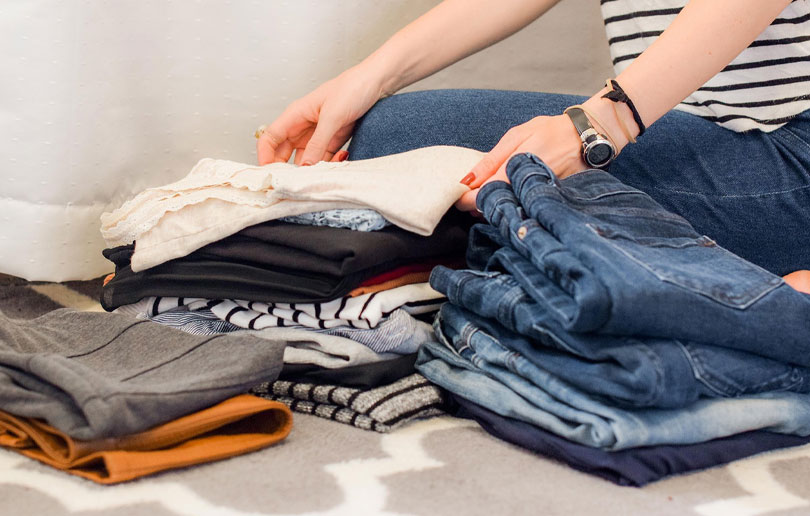When it comes to reducing waste and making eco-conscious choices, donating and recycling used clothes plays a significant role. With the rise of sustainable fashion, second hand clothing wholesale has become a popular option for eco-conscious consumers. In this article, we will explore the benefits of secondhand wholesale and how it contributes to a more sustainable future.
The Environmental Impact of Fast Fashion
The fashion industry, particularly fast fashion, has a detrimental impact on the environment. The production of clothing involves the use of excessive resources, such as water, energy, and chemicals, which contribute to global pollution. Additionally, the disposal of unwanted clothing in landfills results in vast amounts of textile waste. By choosing second hand clothing wholesale, consumers can actively participate in reducing the environmental damage caused by fast fashion.
Providing Affordable and Sustainable Fashion Options
Second hand clothing wholesale offers consumers a more affordable way to update their wardrobes. Instead of buying brand-new clothes at high prices, individuals can browse through wholesale secondhand clothing options. Whether it’s for personal use or for a business, such as a vintage store or online reselling, purchasing secondhand wholesale allows for a wide variety of styles at budget-friendly prices.
Extending the Lifespan of Clothing
By opting for second hand clothing wholesale, consumers contribute to the extension of clothing lifespans. Instead of discarding clothes after minimal use, these items find new owners who will continue to wear and cherish them. This practice significantly reduces the demand for new clothing production, conserving resources and reducing waste.
Supporting Charitable Organizations
Many second hand clothing wholesale operations are partnered with charitable organizations. When consumers purchase wholesale used clothing, they are indirectly supporting these organizations and their initiatives. The revenue generated from these sales often goes toward funding important social and environmental projects, making the act of shopping for bulk secondhand clothing a meaningful choice.
Reducing Textile Waste
One of the critical advantages of secondhand wholesale is its impact on textile waste reduction. Since these clothes are not thrown away but rather given a second chance, they avoid ending up in landfills. By choosing wholesale used clothing, consumers actively participate in reducing the amount of textile waste generated and contribute to a more sustainable fashion industry.
Encouraging Circularity in Fashion
Second hand clothing wholesale promotes the concept of a circular economy in the fashion industry. When clothes are continually reused, recycled, and given new life, the linear production model of “take, make, and dispose” is disrupted. Wholesale secondhand clothing plays a crucial role in promoting a more sustainable and efficient system, where resources are valued, waste is minimized, and clothing items are kept in circulation for as long as possible.
Benefits and the Process
Donating and recycling used clothes is not just a responsible choice; it’s a simple way to make a positive impact on the environment and support those in need.
1. Helping Those in Need
When you donate your used clothes, you’re providing essential items to individuals and families who may not have the means to buy new clothing. Your gently worn garments can offer warmth, comfort, and dignity to someone in a challenging situation.
2. Reducing Waste
Every year, tons of textiles end up in landfills, contributing to environmental problems. By recycling and donating clothes, you’re helping reduce this waste. Textile recycling can also prevent harmful chemicals from leaching into the soil.
3. Saving Resources
Producing new clothing consumes valuable resources like water, energy, and raw materials. Extending the life of your clothes through donation and recycling reduces the demand for new production, conserving these resources.
4. Decluttering and Organizing
Cleaning out your closet and donating unwanted items can declutter your living space, making it more organized and functional. It’s a great opportunity to simplify your life and keep only what you truly need.
5. Tax Deductions
In some countries, charitable donations, including clothing, can be tax-deductible. Keep a record of your donations and check with your local tax authorities or a tax professional to see if you’re eligible for deductions.
The Donation Process
- Sort and Clean: Start by sorting through your clothing items. Separate gently worn, clean clothes that are suitable for donation from items that are damaged or heavily worn.
- Find Local Charities: Look for local charities, shelters, or thrift stores that accept clothing donations. Many organizations have specific guidelines for what they can accept, so check their websites or call ahead.
- Wash and Pack: Wash and fold your clothes before packing them for donation. This ensures that they are in good condition and ready to use. Use boxes or bags to pack the items neatly.
- Drop-off or Schedule Pickup: Depending on the organization, you can either drop off your donations at their location or schedule a pickup if available.
- Tax Receipt: If you’re eligible for tax deductions, ask for a receipt when you drop off your donations. This will help you claim deductions during tax season.
Recycling
For clothing that is too worn or damaged for donation, explore textile recycling options. Many communities have collection bins specifically for textiles. These items can be repurposed into things like cleaning rags or even new fabric.
By donating and recycling your used clothes, you’re not only helping individuals and the environment but also promoting a culture of responsible consumption. It’s a simple yet impactful way to make a difference in the world around you. So, the next time you clean out your closet, consider the positive impact your old clothes can have through donation and recycling.
Conclusion
Choosing second hand wholesale offers consumers an opportunity to make eco-conscious choices and contribute to a more sustainable future. By extending the lifespan of clothing, reducing textile waste, and supporting charitable organizations, individuals can actively participate in creating a positive impact on the environment. With second hand clothing wholesale, affordability and sustainability go hand in hand, making it a wise choice for both consumers and the planet.


